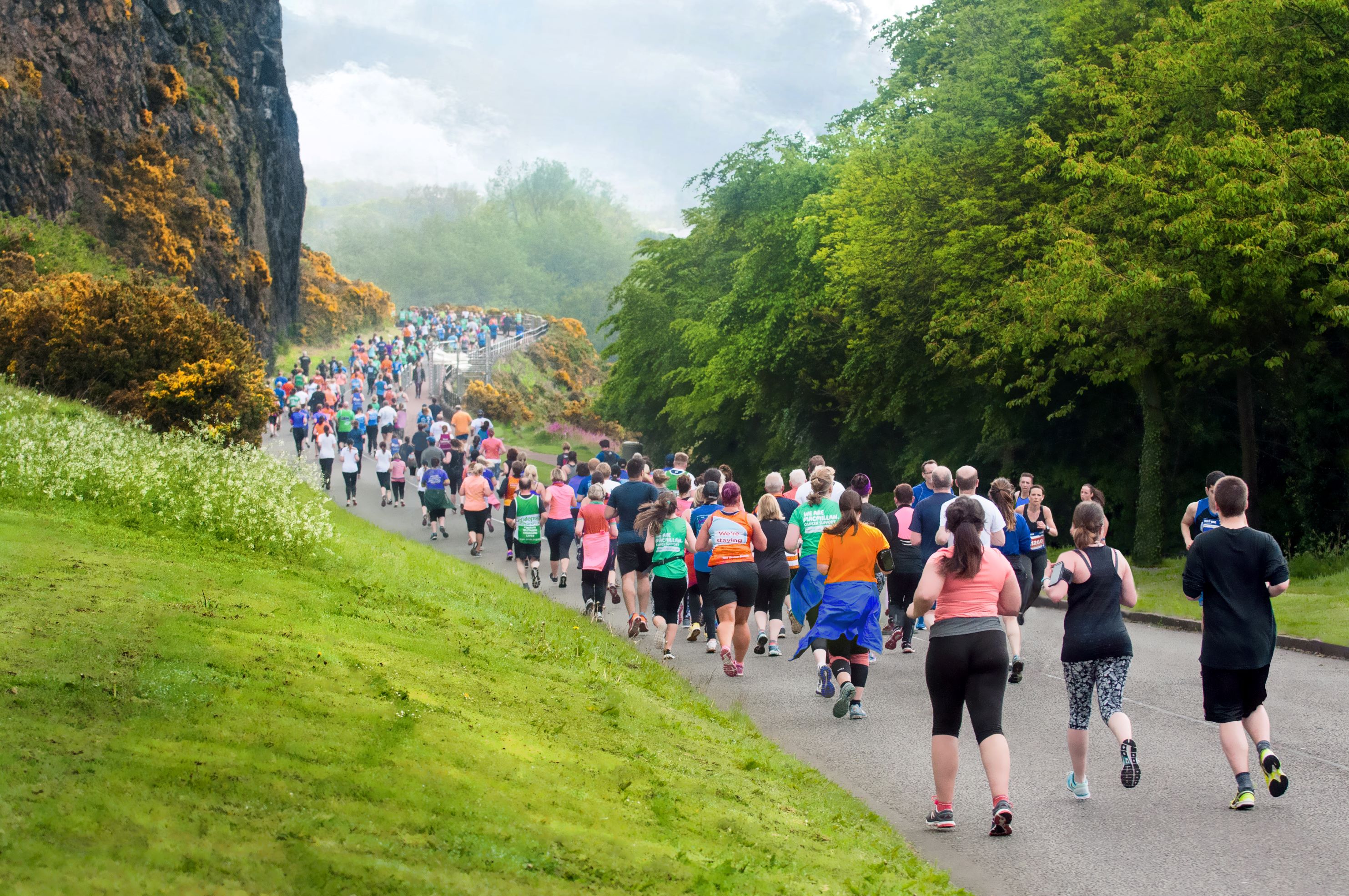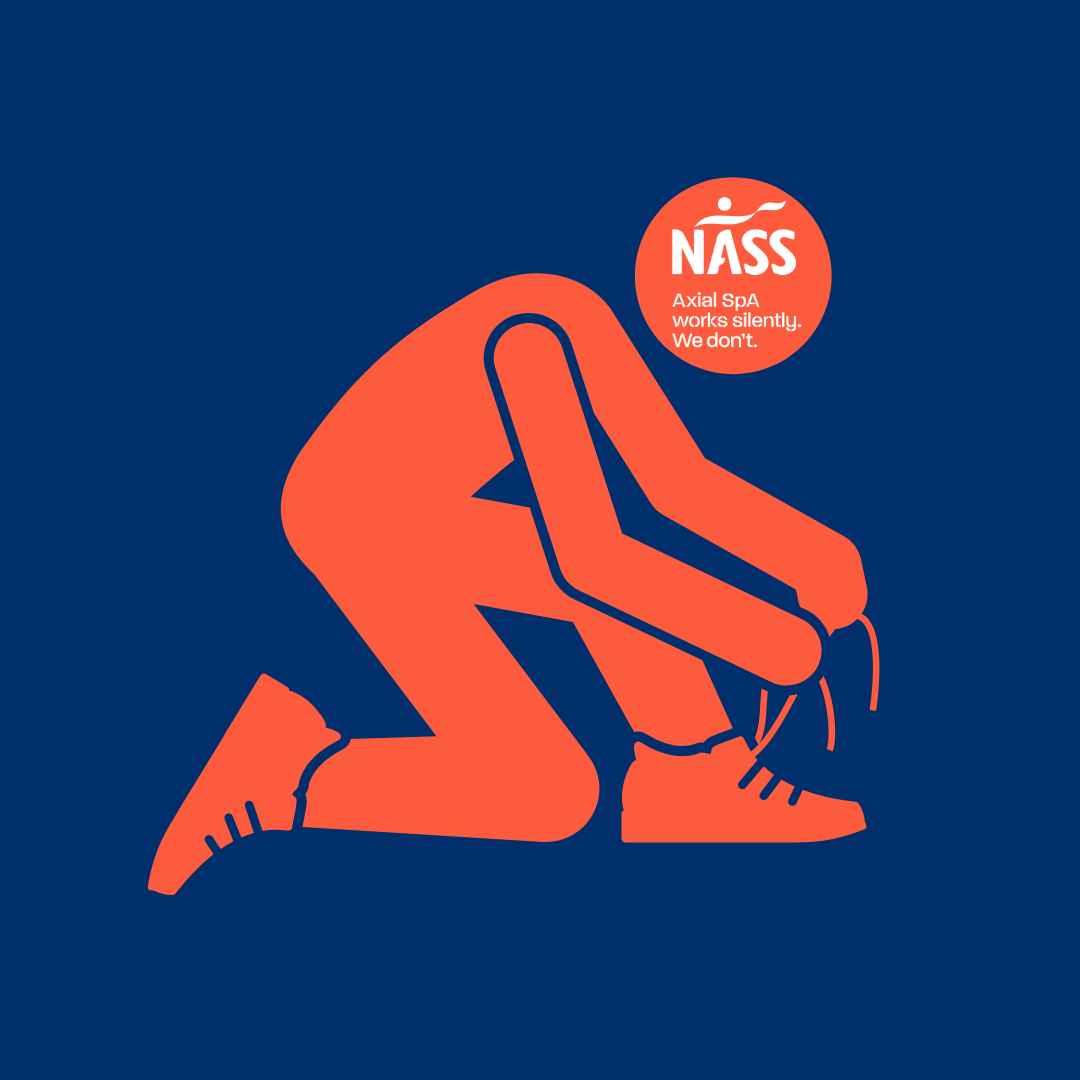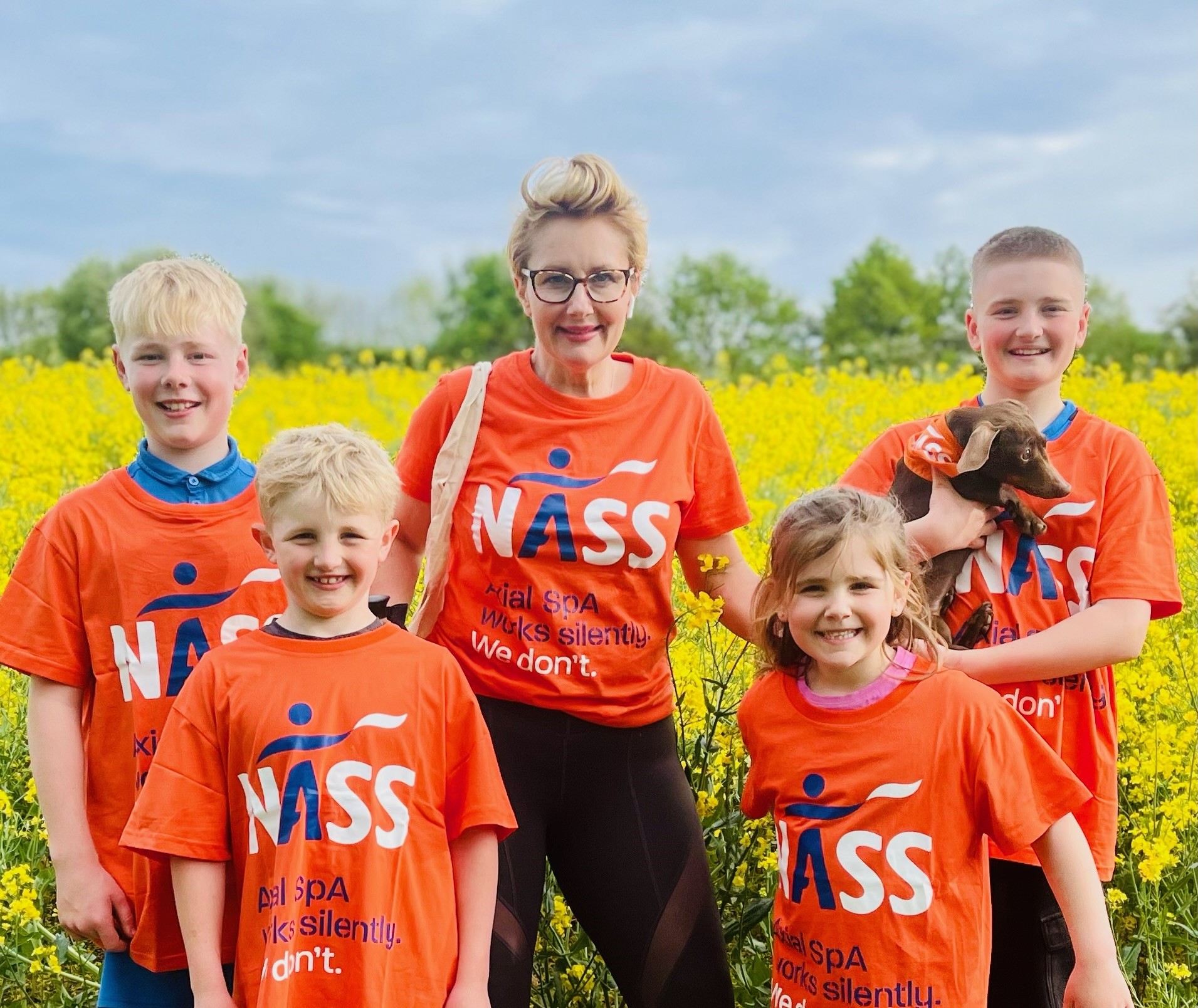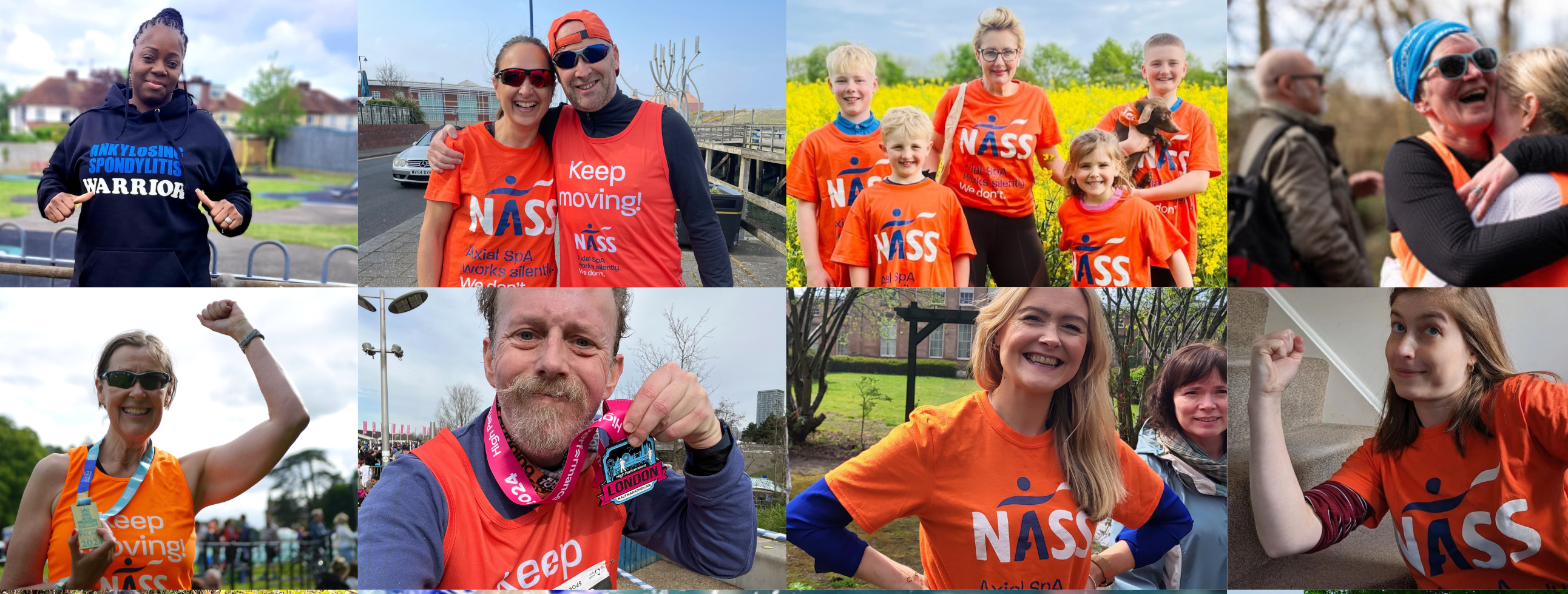
Virtual Challenges
Explore all of the virtual challenges you can sign up to in 2025
Sign me up
Want to take part in a challenge event to fundraise for NASS in your own time and space? Join a virtual challenge event!

Explore all of the virtual challenges you can sign up to in 2025
Sign me upFill in the form below to receive your welcome email and supporters’ pack to get you started on your fundraising journey. We’ll support you every step of the way.
If you have any questions about challenge events, please email fundraising@nass.co.uk or call 020 8741 1515 and press option 2.

Get inspired by reading more stories of others affected by axial SpA who have chosen to fundraise to support people with axial SpA.
Read more stories
Find out why your support really does matter, the impact your support can have, and why your support has never been more urgent.
Find out more1 in 200 of the adult population in the UK have axial SpA (AS). That's twice as many as multiple sclerosis and Parkinson's disease.
Axial SpA (AS) is a condition that affects young people. Symptoms start late teens to early twenties, with the average age of onset being 26.
The current average delay to diagnosis from when symptoms start is 8.5 years, by which irreversible damage to the spine may have occurred.
59% of people with axial SpA (AS) report experiencing mental health problems compared to 25% of those with musculoskeletal conditions overall.